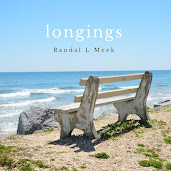Love Walks Through Rain
Orange Band Records (2023)
Pianist Ann Sweeten’s composing and performing style is among the most unique and almost instantly recognizable among her contemporaries. Stretching back to her 1998 release, Passage, which reviewed in the printed version of Wind and Wire (of which I wrote “One soothing and beautiful song after another. Ann has a solid command of technique and rich melodic sensibility. She aims for your heart, and hits the mark every time.”), I have followed her recording career and have consistently been impressed by her heartfelt melodies married to a blend of somber reflection, somewhat melancholy remembrance, and warm friendliness. Another aspect of her recordings which are only known if you buy her albums in physical format (I assume) is her in-depth and highly personal liner notes which may be the unflinchingly honest in the instrumental/new age field. These liner notes serve to both enhance her music and, more importantly, invite the listener “inside” Sweeten as a living and breathing person.
Her latest album, Love Walks Through Rain, may be her most intensely personal yet (which is saying something). The songs reflect her personal trials of recent times including her medical issues and, more impactful if I interpret her notes correctly, the loss of her truly beloved dogs. However, with her usual artistry and talent, the album is not a walk through a funeral-type sorrowful soundscape, but instead a work evoking not just pain and sadness but also growth and healing.
Sweeten once again returned to work with the duo team of Will Ackerman and Tom Eaton at Imaginary Road Studios with Sweeten sharing production credits and Eaton manning the boards for engineering, mixing, and mastering. So, production quality is, obviously, flawless. Some of the IR usual suspects join in some tracks (see full list below) along with Nancy Rumbel on English Horn. Sweeten, as usual, does the heavy lifting and her fluid piano lead lines dominate the eleven tracks which is her style, and it serves her well. As mentioned above, while the overall tone of the music is somber, there is also the artist's characteristic melodic warmth. Sweeten may be one of the most romantic pianists recording these days, using romantic in a broader sense, i.e., not just referring to love. One aspect of Ann Sweeten's music that stands out and impresses is her lack of pretension without any trace of faux sentimentality or sensation of maudlin evocations. She is, for all intents and purposes, a true "wears her heart on her sleeve" musician.
While throughout her career, Sweeten has maintained a singular style, with variations mostly being limited to recording either with guest artists or solo or embellishing her songs with discrete application of synthesizer shadings, how she differentiates in successive albums is a refinement of both artistry and literal technique, honing her talent on each release to a finer degree in subtle but perceptible ways. Certainly, she has been through a lot in recent years, but if those trials have contributed to her music and given her even more impetus, well, then that is the silver lining to her grey cloud. Some people thrive on challenges and with Ann Sweeten, she has not just risen to the challenges of her life, but she continues onward despite them. To that I say "Bravo."
ALBUM DETAILS
All songs composed and arranged by Ann Sweeten (a Steinway
Artist)
Produced by Ann Sweeten, Will Ackerman, and Tom Eaton
Engineered, mixed, and mastered by Tom Eaton
Recorded at Imaginary Road Studios
Visual Artistic Director and Photography by Randy Yoder, RBY
Photography, Salem, MA
MUSICIANS:
Ann Sweeten: Steinway Baby Grand, Model B
Charlie Bisharat: Violin
Tom Eaton: Bass
Premik Russell Tubbs: EWI, Soprano saxophone
Eugene Friesen: Cello
Nancy Rumbel : English horn
Will Ackerman: Guitar





